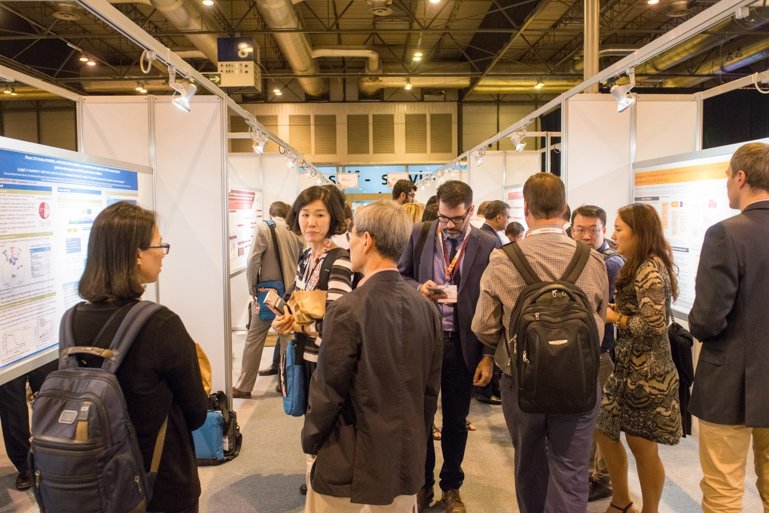Liquid biopsies are fast making their mark as a diagnostic test for minimal residual disease (MRD), providing guidance on how to tailor treatment for early-stage cancers
With technological advances increasing the sensitivity and specificity of testing, liquid biopsies are fast making their mark as a diagnostic test for minimal residual disease (MRD), providing guidance on how to tailor treatment for early-stage cancers. Yesterday, results from two studies exploring the use of liquid biopsies in colorectal cancer (CRC) confirmed the potential of this approach to optimise prognosis prediction.
Tumour gene mutations and other cancer-specific molecular alterations identified perioperatively in early-stage CRC can be used to sequentially monitor residual disease with liquid biopsies. Ultimately, a goal of cancer researchers is to develop liquid biopsies with high accuracy so that when alterations cannot be detected post-surgery, the likelihood of MRD and consequent relapse, is small and adjuvant chemotherapy could be avoided or minimised. "When the alterations are detected, adjuvant chemotherapy is justified in an attempt to eradicate MRD and improve patient outcome,” explains Dr Rodrigo Dienstmann from Vall dʹHebron Institute of Oncology, Barcelona, Spain. "However, if the liquid biopsy remains positive following adjuvant chemotherapy, multiple studies have shown that the likelihood of relapse is very high and other treatment modalities might come into play.
”A controversial question in the treatment of stage III colon cancer is how to select low-risk patients for 3 months’ duration of adjuvant treatment rather than the standard 6 months. Late-Breaking results presented at ESMO 2019 from a retrospective analysis of the phase III IDEA-FRANCE trial revealed that the use of circulating tumour DNA (ctDNA) methylation markers (WIF1 and NPY) before chemotherapy initiation was an independent prognostic factor on top of clinicopathological features and microsatellite instability (MSI) status (hazard ratio [HR] 1.85, p<0.001) (Abstract LBA30_PR). "It is important to emphasise that 90% of the patients recruited in this study were treated with modified FOLFOX6 adjuvant chemotherapy,” comments Dienstmann. "Unfortunately, the assay did not help define treatment duration, as both ctDNA-positive (13.5%) and -negative cases had improved outcomes with 6 months’ therapy. However, this represents the largest study with liquid biopsy post-surgery to assess prognostic and potential predictive associations.”
A different assay was used in the second study, which aimed to identify MRD in a smaller prospective single institution cohort. Tumours were profiled with a custom panel of 29 recurrently mutated genes in CRC to identify mutations that were subsequently tracked in blood in the post-operative setting (Abstract 522O). In multivariable analysis, T stage, CDX2 expression and ctDNA (HR 11.33, p<0.001) were significantly associated with recurrence. In this study, liquid biopsies were able to detect metastatic relapse considerably earlier than radiological imaging, with a median lead time of 10 months, in line with what has been observed previously in other studies. "It is time to move beyond ctDNA profiling as a tool to improve prognosis prediction in the early-stage CRC setting”, says Dr Rodrigo Dienstmann from Vall dʹHebron Institute of Oncology, Barcelona, Spain. "We must assess the clinical impact of liquid biopsies as diagnostic markers of minimal residual disease.”
There is a spectrum of approaches for building a framework for liquid biopsy diagnosis of MRD, explains Dienstmann. At one extreme is the completely personalised approach. Whole-exome sequencing of a patient’s tumour is used to identify mutations unique to that individual and then to design a liquid biopsy, which can be used to track the mutations over time. "This type of testing has an incredibly high sensitivity. However, while feasible—and there are many ongoing studies investigating this approach—it is complex and costly,” he continues. "At the other extreme is the use of a broad panel of genes that are frequently mutated in cancer or cancer-specific methylation markers. This non-personalised testing is much easier to implement but may have lower sensitivity for MRD detection.”
While the potential value of liquid biopsy for detecting MRD at different time points in the clinic is becoming increasingly understood, this knowledge is still far from being fully applied in practice. "For example, will clinicians be confident enough with a negative liquid biopsy collected post-surgery to withhold adjuvant chemotherapy in patients with intermediate risk CRC based on clinicopathological and other molecular markers? And how to deal with a situation of mutation-positive liquid biopsies post-adjuvant chemotherapy? Standardised approaches are needed to manage the different scenarios in ongoing clinical studies and clinicians should be supported with practical guidelines in the future.” Despite unsolved technical and clinical issues, Dienstmann believes that oncologists could be using liquid biopsy for MRD detection in daily clinical practice in just 5 years’ time. "Technologically speaking, it is feasible right now,” he says. "It is just a matter of applying it in the best way and of defining its clinical utility. And we know that this very promising approach has the highest potential to supplement existing markers for adjuvant treatment selection in early-stage CRC.”
ESMO Congress 2019 abstracts:
- LBA30_PR - Analysis of circulating tumour DNA (ctDNA) from patients enrolled in the IDEA-FRANCE phase III trial: Prognostic and predictive value for adjuvant treatment duration
- 522O - Mutation tracking in circulating tumour DNA (ctDNA) detects minimal residual disease (MRD) in patients with localized colorectal cancer (CRC) and identifies those at high risk of recurrence regardless of stage, lack of CDX2 expression and CMS subtype



